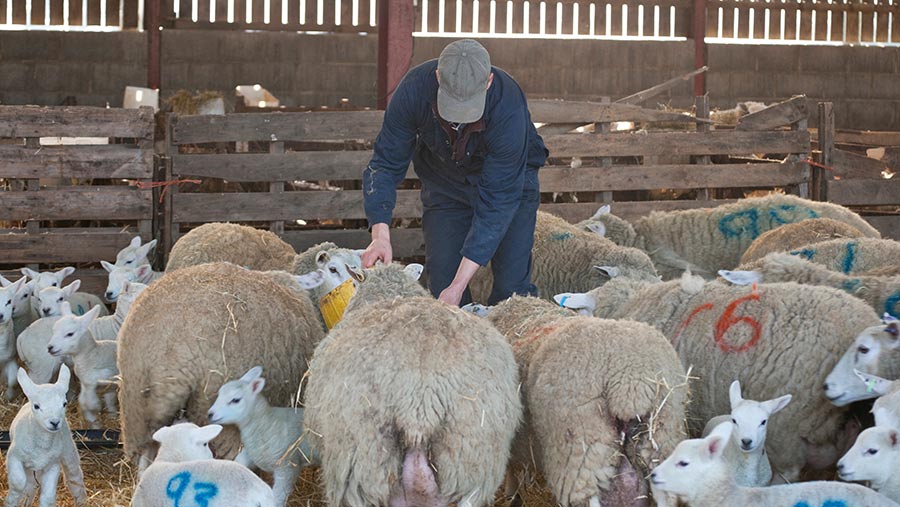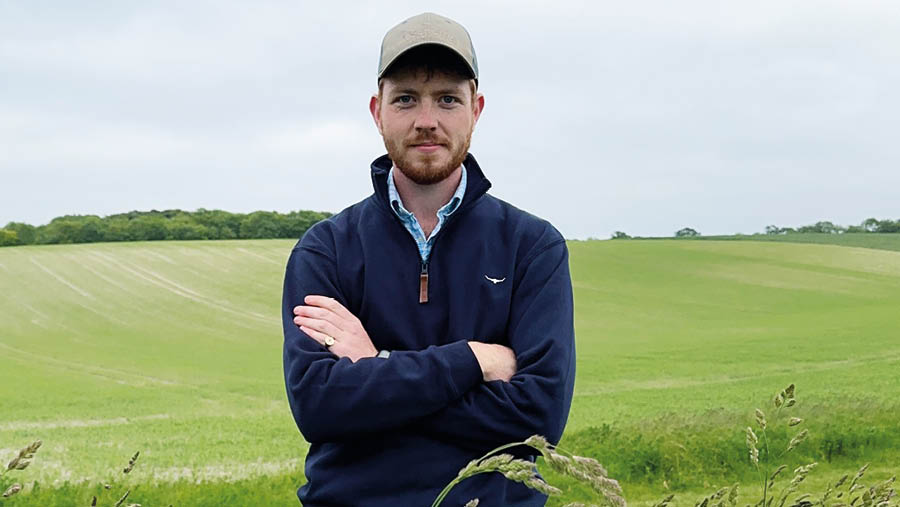Young farmers: What do they need to succeed?
 © A Linscott/Adobe Stock
© A Linscott/Adobe Stock The third annual study carried out by the National Federation of Young Farmers’ Clubs (NFYFC) has shed new light on the challenges facing young farmers as they try to break into farming.
The study, backed by both Defra and training body Lantra, highlights the growing frustration over changing regulations and the uncertainty over career prospects for new entrants within the agricultural sector.
Among the top concerns cited were accessibility to land and to finance, with 72% of the 511 respondents feeling that it is difficult, if not impossible, to get into farming.
Some 75% also felt that the new Defra environmental schemes were not benefiting them at all.
See also: Tips for young farmers on making media appearances
Luke Cox, NFYFC’s vice chairman of the YFC Agri steering group, said:
“Young farmers want to continue to produce great British food, but year-on-year the survey indicates that new entrants can’t access the support required to break into the industry.
“Without this injection of new and exciting ideas, UK farming is going to miss out on a generation of talent and enthusiasm.”
Key findings
The survey was conducted on an audience of 511 young farmers, with an average age of 22 years.
Of those that responded, 81% were members of a young farmers club, and 31% were students.
- 10% of respondents felt they had a good understanding of emerging Defra land management schemes
- 72% of respondents felt it will be difficult or impossible to move into farming
- 75% felt that Defra environmental schemes do not affect them at all
- 68% cited grant funding as the most important factor in delivering environmental outcomes
- 60% believed there was a lack of information and advice to explain government policies
- 10% felt they would not need to acquire new skills to work in line with new policies
Education needs
One of the greatest issues uncovered by the survey was the need for education and development around soil health, which ranked highly, alongside the need for business and financial management training,
More than 60% of respondents noted that soil health was a topic they needed guidance and training on if they are to succeed and understand agri-environmental targets.
Responding to the results, the NFYFC and Lantra have called for a “back to basics” approach in making skill development and training in the fundamentals of soil health a priority.
Lantra spokesperson Corina Urquhart said: “Well-managed and biologically active soils are the foundation of farming, representing the largest active carbon store after our oceans.
“Therefore, we are keen for further insights from young farmers to ensure our soils are fit for food production and future business opportunities.”
Already, a series of focus groups with NFYFC members have been planned for later in the year.
Delivering agri-environment policy
Asked what farmers and land managers would need to deliver more environmental outcomes, 68% of the respondents, which had an average age of 22, ranked grant funding as the most important aspect of support required.
55% chose business support, 56% voted for encouragement of new entrants, and 54% ranked training the highest.
Despite this, two-thirds of the respondents said they did not understand what current agri-environment policy changes would mean for them, and 60% of young farmers felt they lacked proper information and advice on agricultural policy.
A further 90% acknowledged they would need to acquire new skills to farm and manage in line with new legislation.
NFYFC’s agriculture and rural issues manager, Sarah Palmer, said: “Positive action from three years of surveying is welcome to address the concern raised for prospects and opportunities for next generation farmers and land managers.
“This research, combined with the learning from the recent Defra new entrant pilots for the design of a future scheme, will provide much-needed support for next generation aspirations.”
New entrant Chris Lake
Despite highlighting the many difficulties, the survey also showed that, on average, young farmers feel more positive than negative about the new policy framework.
Subject to the right skills and development training, they are also undeterred by the industry’s challenges.
Young farmer Chris Lake, 22, from Cambridgeshire, is determined to start farming and secure a tenancy.

© Chris Lake
Not originally from a farming family, Chris, who works as a farm consultant, is experiencing first-hand the many challenges that new entrants face.
He said: “I’m passionate about breaking into farming – and you need to be to make it happen.
“Land is the asset that determines whether farming becomes a full-time job.
“My plan is to have a tenancy so I can run a mixed farm, which I am financing through the sale of a property.
“I was turned down for a tenancy in Norfolk last year and I have since applied for one in Cambridgeshire.”
Chris first became interested in a career in farming after joining his local YFC in Comberton.
He made a friend that worked on a regenerative farm, where he started cultivating and drilling before studying applied farm management at the Royal Agricultural University in Cirencester.
“The biggest barrier for new entrants is land accessibility and it’s an issue I am currently experiencing.
“I am determined that I will be farming by September – even if that means I rent private land. I appreciate this is not an option for everyone.
“Finance is another major barrier, but some of that is due to not understanding what is available to new entrants.
“I recognise it’s a minefield for a lot of new entrants trying to source government funding.
“It’s either too difficult or contradictory – the government needs to be more concise with what they are offering and stick with the titles and eligibility criteria of the schemes, instead of changing them.”
